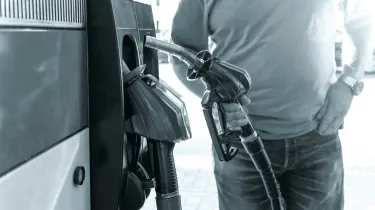
With the new government’s first major budget two weeks away, we’ve written to Chancellor Rachel Reeves on behalf of Auto Express readers and drivers everywhere, demanding that key motoring priorities are addressed in future spending plans. We’ve also pointed out the likelihood of Labour being punished in future polls if the government attempts to excuse fuel duty or Vehicle Excise Duty (VED/road tax) hikes by citing unpopular and unrealistic green targets, or justifies rises as levers pushing drivers towards electric cars that many can’t afford.
Instead, the Chancellor should be looking to increase the £40,000 threshold for the £410 ‘expensive car’ road tax supplement, which threatens to significantly impact the cost of motoring for new and used EV car buyers from April 2025.
We’ve told the Chancellor that while price increases in the broader economy have fallen back, and petrol and diesel prices have eased from recent record highs, this is not the moment to tighten the screws on drivers who are still reeling from the cost of living crisis and struggling to make ends meet.
Instead of reverting to the last Labour administration’s view of drivers as a cash cow and reinventing the ‘fuel price escalator’ that increased fuel duty to 6 per cent ahead of inflation annually under Tony Blair’s Labour government in 1997, we’ve told the Chancellor it’s time for government to respond to drivers’ priorities. That means making significant investment in roads infrastructure and effective police action against car crime - two issues where the country is demanding urgent action.
We’ve also impressed on the Chancellor the drivers’ view that the pothole plague blighting the nation’s road network cannot be allowed to fester unaddressed any longer. Staggering numbers of cars are now being damaged as a result of ineffectual road maintenance, with the AA’s data alone showing it dealt with nearly half a million call-outs to stranded vehicles in the first nine months of this year. Worse, it’s believed that as many of 118 cyclists have died on the roads over the last four years as a direct result of potholes. Transport Secretary Louise Haigh (then shadow) promised £8.3bn of scrapped HS2 funding would be targeted to fixing a million potholes annually in her pre-election campaigning, and the Chancellor must now fulfil Labour’s promise to keep faith with the electorate.
Drivers know the Labour party replaced the Conservative government at the last general election on a manifesto that promised NOT to raise taxes on working people, but ministers have spent the ensuing months spreading doom and gloom about what they say is the unexpectedly poor state of the economy they have inherited.
With the Chancellor highlighting a £22bn ‘black hole’ she claims to have uncovered since taking on the role, expectations are rife that the negative messaging is a precursor to a raid on drivers’ pockets at the budget scheduled for 30 October. Coupled to this are fears that the anti-car lobby, active en-masse at the recent Labour party conference under the Sustainable Transport Alliance banner, has the ear of ministers who may be looking to justify tax rises for drivers under the cover of a government tailpipe emissions agenda that is not supported by the majority of drivers.
Exclusive reader survey
Auto Express readers shared their views in a recent survey, when we asked about their budget priorities. Readers told us their three biggest priorities for the government to address are pothole repairs and new road projects, high fuel prices, and car crime and roads policing - these are immediate, tangible concerns that should be dominating the government’s agenda in respect of motorists. Environmental goals, such as moving toward net zero emissions, remain a lower priority for drivers in the context of budgetary concerns.
When asked whether they’d support an increase in fuel duty to pay for certain government priorities, 50 per cent of readers told us they couldn’t support any rise, while 39 per cent said they’d support extra cash being raised if it was targeted at pothole repairs, but only 24 per cent believed a rise would be justified by extra spending on the NHS or schools, and just 17 per cent think a fuel duty rise to support the EV transition would be acceptable.
